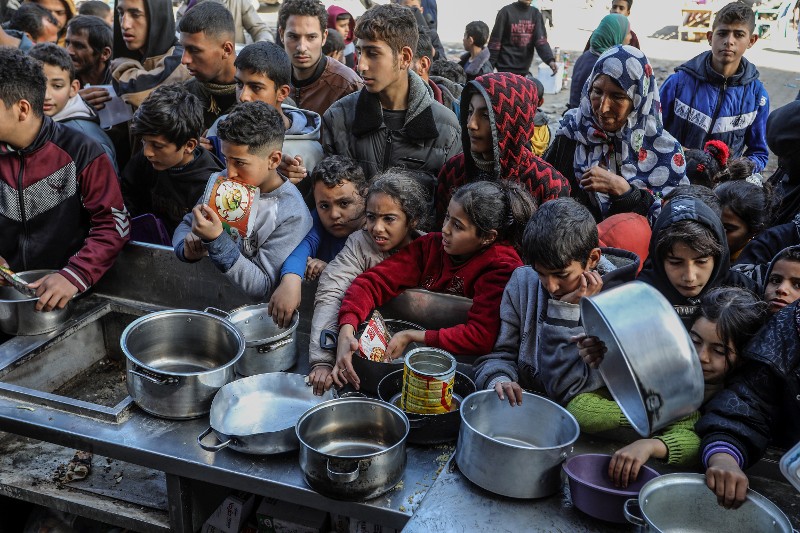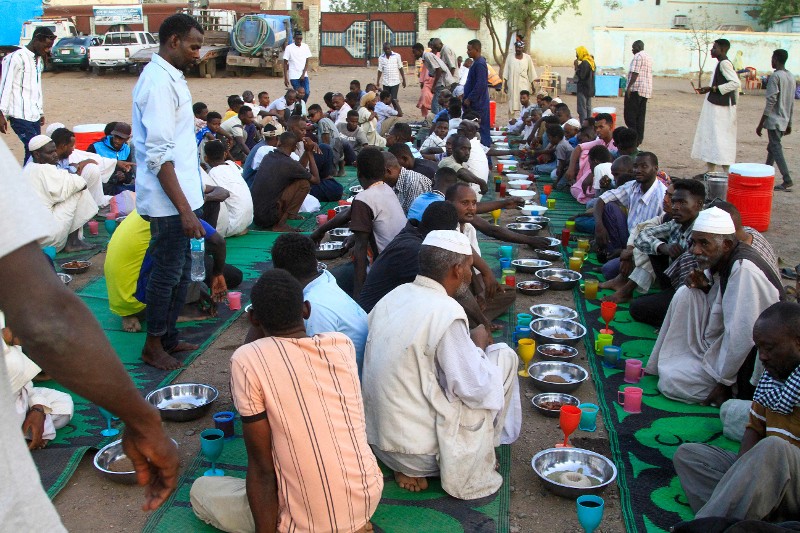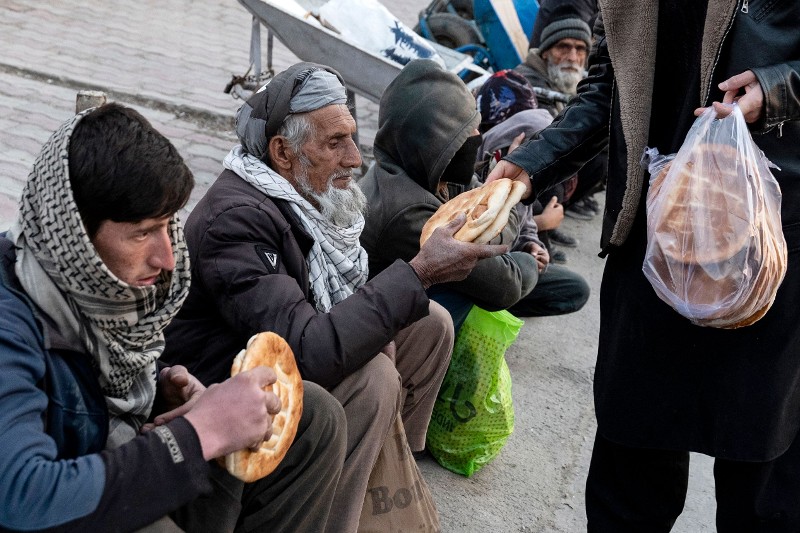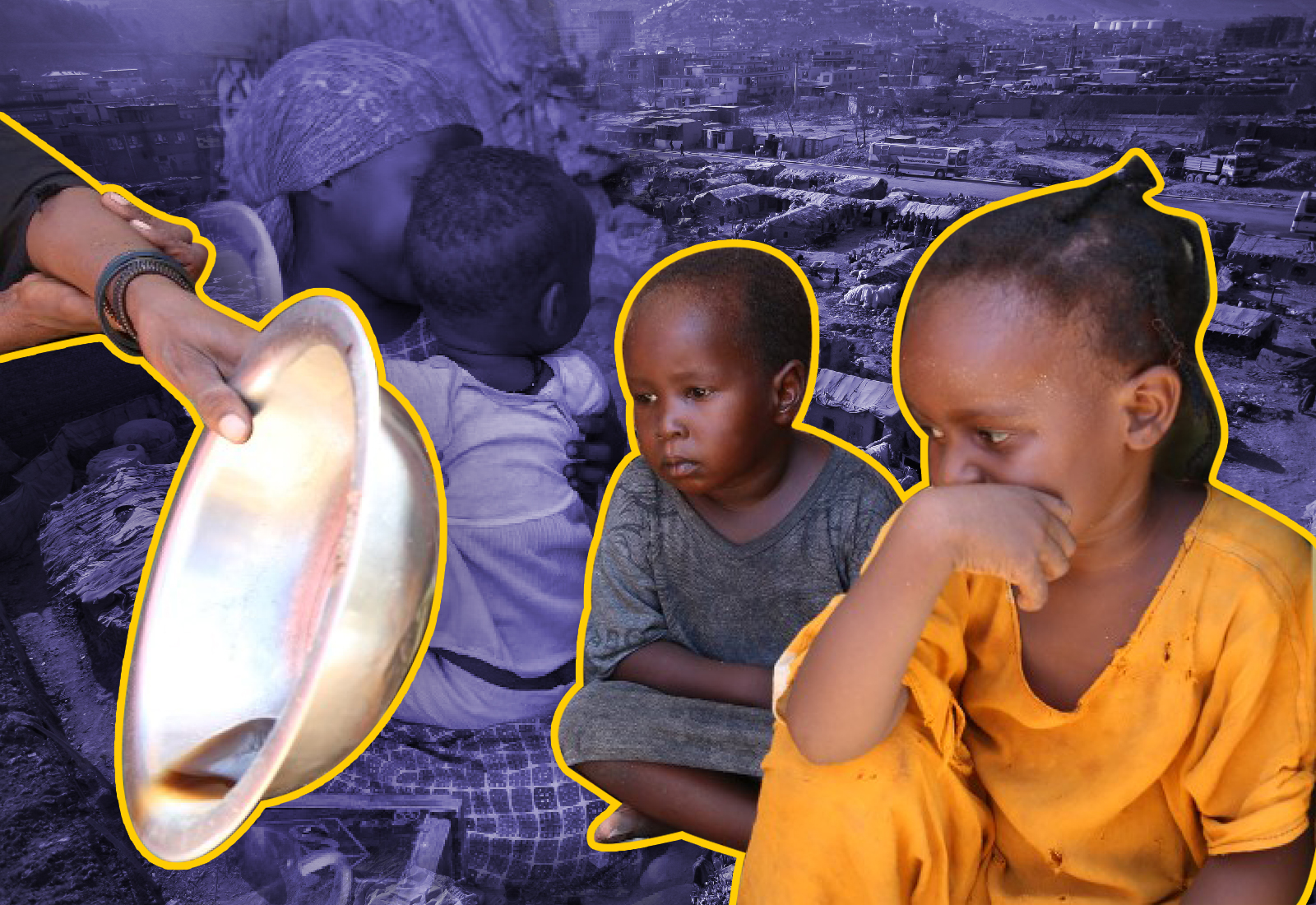More than 600 million people in Muslim-majority countries do not have enough food as the holy month of Ramadan begins, according to data compiled by Islamic Relief.
About one third of these – over 200 million people – are suffering from severe hunger and undernutrition. Nearly 60 million children under five years old in these countries are suffering from stunted growth, which results from chronic undernutrition and affects a child’s mental and physical development for the rest of their lives.
A deadly combination of climate change, conflict and inequality means that hunger is increasing globally, and many Muslims around the world will mark Ramadan without enough food. For many Muslims this will be the toughest Ramadan ever.

· In Gaza, starvation is being used as a weapon of war and the Israeli bombardment and blockade has cut off food supplies for most families. Young infants are dying from malnutrition, people have been murdered as they try to access food aid, and a quarter of the population are now just one step away from famine.
· In Sudan, almost a year of brutal war has left nearly half the population – 17.7 million people – facing crisis levels of food insecurity. Farmers are too scared to plant or harvest crops due to attacks by armed groups, and the fighting has forced millions of people from their homes and restricted humanitarian aid.
· Extreme weather events such as drought or floods have pushed millions into hunger. In Somalia, around 25% of the population are at crisis levels of hunger. In Afghanistan, the worst drought in 30 years has fuelled hunger and left over 23 million people in need of aid.

In Somalia, 85-year-old Adan Dhaqane Hussein fled his farmland to try and find food aid. A blind father, he is struggling to feed his family.
He said: “I spend most of my time looking for food for my family. I am living in this camp and life is very challenging. This Ramadan I do not have food to break my fast and we have nothing at the house.
“We pray for Allah and we are always under His care.”
In Gaza, an Islamic Relief staff member, whose name is withheld due to the security situation, said: “Most people are going whole days without eating and young children are starving to death as famine looms. Desperate families are scrambling for food aid and have been shot and killed while trying to get a bag of flour for their children.”
Every year during Ramadan, Islamic Relief distributes food packs for vulnerable families. This year, Islamic Relief is aiming to provide Ramadan packs to more than 1.1 million people in 32 countries.
Affan Cheema, Islamic Relief Worldwide’s Director of International Programmes, said: “Recent reports by the UN World Food Programme show that hunger is once again rising around the world. It is heartbreaking that so many people will have so little to eat this Ramadan.

“As Muslims, fasting during Ramadan allows us to empathise with those for whom going long periods of time without food is not a choice. It enables us to appreciate the great blessing of having food and clean water, but hundreds of millions of Muslims around the world do not have this and are struggling to survive.
“There is enough food in this world for everyone, and it is inexcusable that hunger is rising again. After years of progress on tackling global hunger, the number of people going hungry has doubled again in the last few years due to rising inequality since the Covid-19 pandemic on top of climate change and conflict. We need world leaders to step up action and prioritise ending hunger once and for all.”
During Ramadan, Muslims traditionally fast with empathy for those who don’t have enough to eat. Those who don’t have enough food or have health issues can be exempt from fasting – though many Muslims who face adversity still fast and draw spiritual strength in the face of humanitarian crisis.
More than 345 million people worldwide are currently living in Phase 3 (“Crisis”), Phase 4 (“Emergency”), or Phase 5 (“Catastrophe”) levels of food insecurity, according to the scale used by the Integrated Food Security Phase Classification (IPC).
Of these Islamic Relief analysis shows that around 37 per cent – about 127 million – are living in Muslim-majority countries.
In addition, millions of other Muslims in non-Muslim-majority countries where Islamic Relief works – such as in Ethiopia, Kenya and Myanmar – are also suffering from severe hunger as Ramadan begins this year.
Islamic Relief is appealing for funds to support its Ramadan distributions this year, and is also calling on international governments to invest more in long-term food security and climate adaptation – especially in poor countries that are worst affected by climate change and war.









